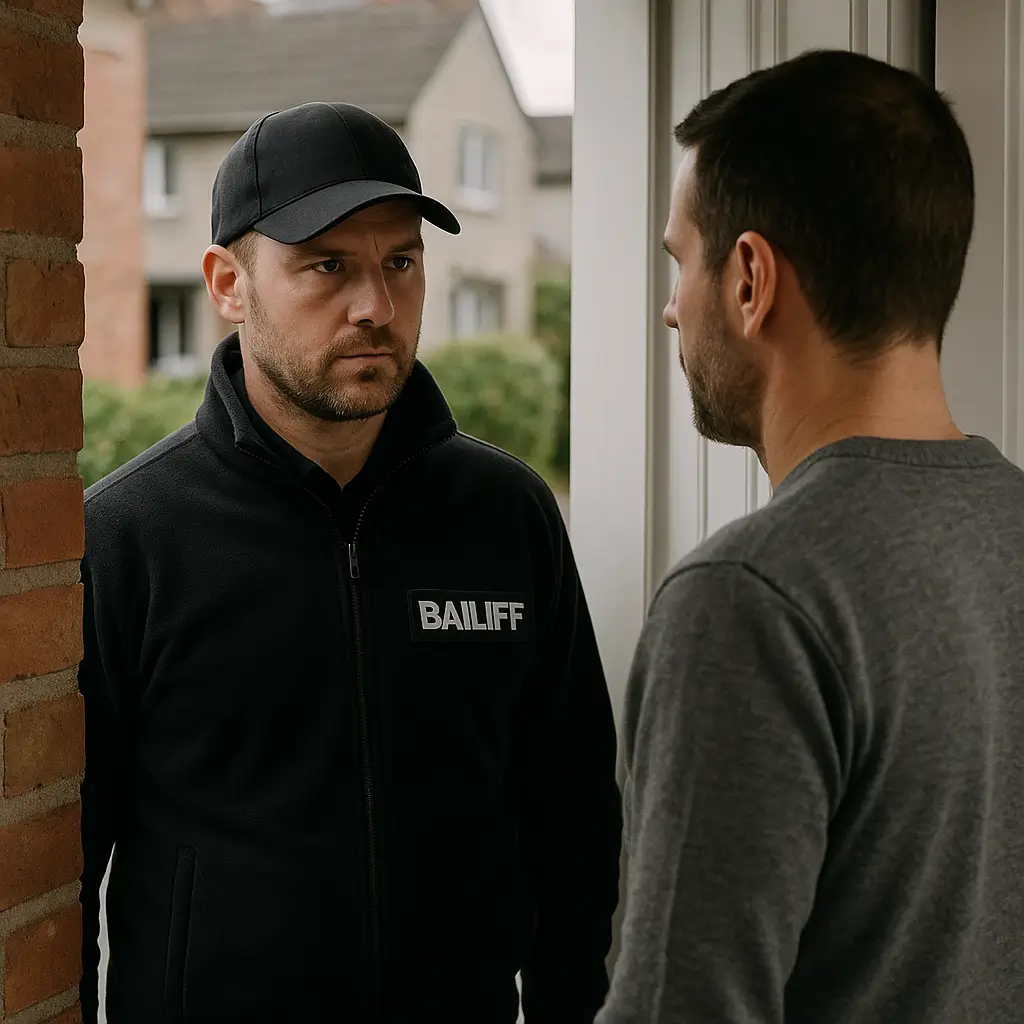Dealing with repeated bailiff visits
Receiving repeated bailiff visits can feel overwhelming and intrusive. Bailiffs may visit several times if debts are unpaid and communication isn’t made. But there are legal limits and rights you can use. There is no fixed legal limit to how many times a bailiff can visit your property, but that does not mean they can attend as often as they like or harass you. Bailiffs can make multiple visits as long as enforcement is still active and the debt remains unpaid.
However, visits must be reasonable and proportionate. Repeated visits in a short period without progress, especially late at night or early in the morning, may be challenged. If you have already told bailiffs you cannot pay or you have no goods to take, continued visits may eventually be stopped. Understanding your rights and acting early can reduce visits, stress, and added fees.
At Bailiff Helpline, we’ll help you understand when visits are lawful and what you can do to stop unnecessary return visits.

How often can bailiffs visit?
There’s no fixed cap on the number of bailiff visits. If a debt remains unpaid and you don’t engage, they may return multiple times. Fees may increase with each visit. Acting early gives you the best chance to stop further visits.
What notice must bailiffs give before visiting?
Before the first visit, bailiffs must send a Notice of Enforcement allowing at least 7 clear days. Each subsequent visit must respect this process. This notice gives you time to explore your options and respond.
When can bailiffs not force entry?
For most consumer/household debts (credit cards, utilities, council tax), bailiffs cannot force entry. Entry must be voluntary or through an unlocked door. Forced entry is usually limited to debts like certain fines, taxes, or criminal debt.
How to minimise or stop bailiff visits?
- Arrange affordable payment plans
- Seek debt advice from our team
- Challenge the debt if it’s incorrect or unfair
Frequently Asked Questions
- How many times will bailiffs try to visit?
Bailiffs may visit multiple times until the debt is paid or a payment arrangement is agreed. Repeated visits are common where there’s no communication or offer to pay. - Do bailiffs charge for each visit?
Yes. Each stage such as notice, visit, attempted enforcement may add fees and costs to the debt. Ignoring visits can increase what you owe. - Can bailiffs visit without warning?
No. Before the first visit they must give you at least 7 days’ notice via a Notice of Enforcement. Unannounced visits without this notice are not lawful for most debts. - Can they come every day?
Technically, there is no limit, but harassment and unreasonable frequency could be challenged. If visits feel excessive, you may have grounds to complain or seek help. - Can I refuse them entry?
Yes. You do not have to open the door. Bailiffs cannot force entry for most debts. Keeping your door closed and not inviting them in gives you protection and time to act.
Take Action Before Bailiffs Do
Ignoring Bailiffs can lead to further enforcement action. The sooner you act, the more options you have.
- Call Now: 0161 820 1298
- Speak With Experienced Advisors
- 100% Confidential Advice